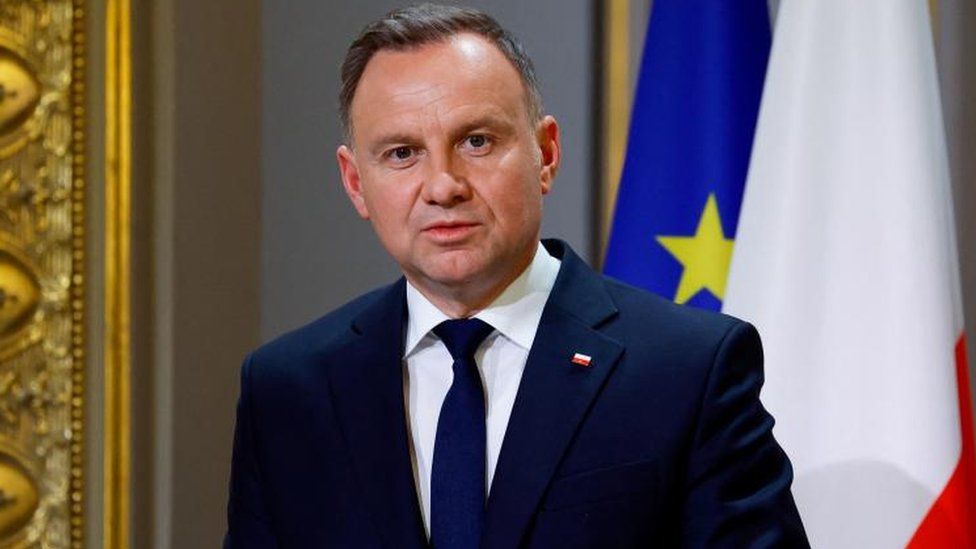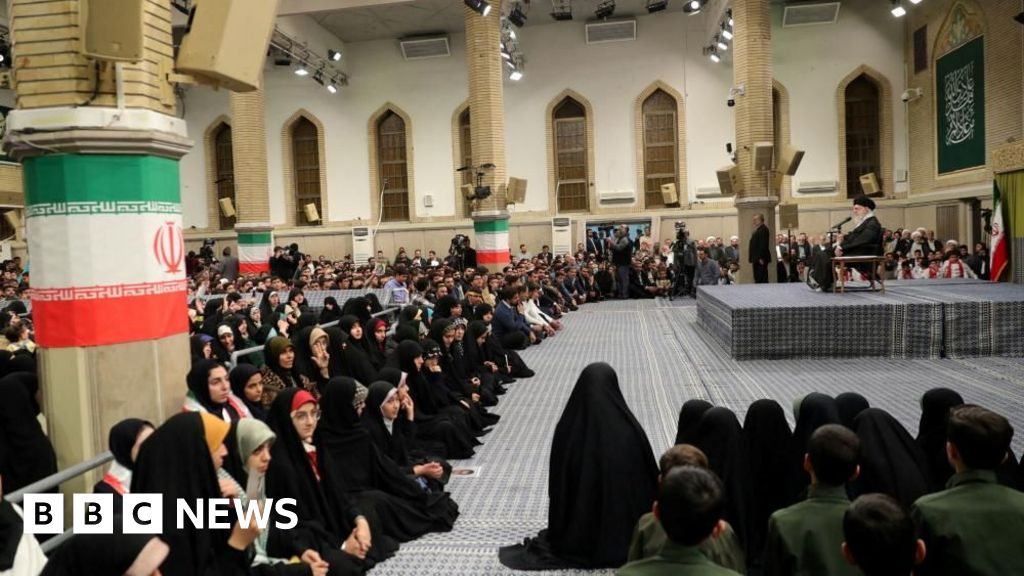ARTICLE AD BOX
 Image source, EPA
Image source, EPA
Polish President Andrzej Duda amended plans to give a commission investigating Russian influence power to ban people from public office
By Adam Easton
BBC News, Warsaw
Poland has watered down plans for a commission with the power to bar people from public office for links to Russia.
Approved by Poland's parliament in May, the commission will probe alleged Russian interference between 2007 and 2022.
But it was criticised by the EU and US, who feared its powers could be used to interfere with free and fair elections.
Polish MPs have now voted to strip the committee's controversial power to ban people for up to 10 years.
The commission had originally been empowered to bring in 10-year bans from managing public funds to anyone found guilty of acting under "Russian influence" - which would, in effect, bar them from holding national office.
In particular, it will investigate gas deals signed with Russia, which the government says left the country overly reliant on Moscow.
After the law to create the committee took effect on 31 May, the European Commission acted with uncharacteristic haste and launched proceedings against Poland for infringing EU rules.
Both the US and EU said the nine-member committee, which was set to be dominated by MPs from the governing Law and Justice Party (PiS), could be used to target the opposition ahead of this autumn's elections.
Poland's opposition dubbed the law "Lex Tusk" and said it was designed specifically to discredit the leader of the main opposition party and former prime minister Donald Tusk.
Stung by US criticism of the law, President Andrzej Duda tabled amendments removing the committee's power to ban anyone accused of acting against Polish interests from public office.
In a remarkably swift U-turn, the same governing party MPs who enthusiastically approved the legislation just a few weeks ago voted to neuter the committee's powers.
MPs from the opposition Civic Platform Party fear the investigation - which will cover its last term in office between 2007 and 2015 - will seek to damage support for Mr Tusk, who was prime minister in this period.
Mr Tusk is now the party's chairman and leader, though he is not an MP, and is expected to challenge Prime Minister Mateusz Morawiecki in elections later this year.
The bill amending it now goes to the Polish Senate for consideration.

 1 year ago
29
1 year ago
29








 English (US)
English (US)